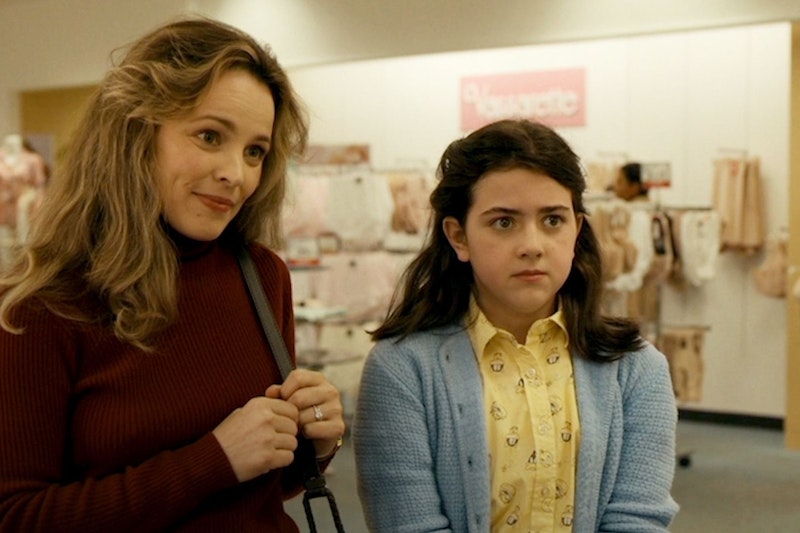Author Judy Blume’s Are You There God? It’s Me, Margaret was published in 1970 and has been a beloved novel for generations of teenagers while occasionally banned in various jurisdictions. Yet for some reason, it took more than 50 years for it to get a full-on movie adaptation. Why so long? It appears to have been a combination of reluctance on Blume’s part, and likely squeamishness by studios to make a movie in which the central dramatic arc hinges on a 12-year-old girl getting her first period.
Consider this inverse of the “that movie could never be made today” talking point. Are You There God? It’s Me, Margaret probably couldn’t have been made—and wasn’t—until relatively recently. It was worth the wait, because Are You There God? It’s Me, Margaret is a delight, one that makes every right choice, from casting to writing to the atmosphere. The 1970s detail is perfect, with lots of music from the era. There are three generations of great performances here. And that emotional arc—one that I’m pretty sure has never been the basis of a major film before—is executed just about perfectly.
Written and directed by Kelly Fremon Craig—whose equally outstanding film, 2016’s Edge of Seventeen, was also a teenage girl’s story—Margaret is a generally faithful adaptation of Blume’s novel, made with the cooperation of the author. The film’s set in the novel’s publication year of 1970, Margaret tells the story of Margaret Simon (Abby Ryder Fortson), a sixth grader whose parents (Rachel McAdams and Bennie Safdie) have just moved with her from New York City to New Jersey, which puts her further away from her grandmother (Kathy Bates).
Dealing with incipient puberty, Margaret joins three other girls in a “club,” where they discuss boys, bras, and their anxiety about getting their periods. Margaret, meanwhile, develops a crush on a neighborhood boy named Moose (Aidan Wojtak-Hissong, a dead ringer for Art Garfunkel). The film’s other major plot point is theological. Margaret’s father is Jewish while her mother is Christian; his maternal grandparents are devout Christians who are estranged, while her paternal grandmother is Bates—not exactly an intuitive choice to play a Jewish grandma, although I bought it mostly because she reminded me so much of my own Jewish grandma.
Margaret’s told she can choose her religion when she wants to but, as the title suggests, she speaks to God throughout, as a precursor of the more modern trend of younger people rejecting organized religion, while coming up with their own one-size-fits-all brand of spirituality. Abby Ryder Fortson, who played Ant-Man’s daughter in a couple of Marvel movies is a revelation as Margaret, showing the right amount of joy and vulnerability. The movie probably would’ve collapsed with the wrong actress in the role, but Fortson was just right, and she’s going to be a star.
The club of the four girls, especially its leader, has some echoes of Mean Girls, and there’s the co-star of that movie, Rachel McAdams, playing a mom this time, and doing some outstanding work as a woman struggling with her place as a mother who just gave up working, especially at the very specific stage of feminism in 1970. And Kathy Bates gives a multi-layered turn, eschewing broad Jewish stereotypes to play an overzealous nevertheless caring grandmother.
There’s a documentary called Judy Blume Forever that debuted on Prime Video earlier this month, that provides context about the history of the Margaret book specifically, and Blume as a cultural force more broadly. It led to a movie that, despite a five-decade wait, is an emotional and comedic triumph.

